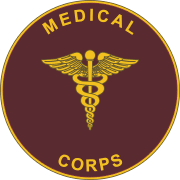There is no topic more fascinating in medicine than physiology
As a former T.A. for Medical Physiology
Medical Physiology is a unique course because it is not about memorizing facts but rather
building a mind-set and framework for thinking about the function of the human body. With that in mind, realize that you are not taking medical physiology to become a doctor-- you will learn that by doing. You are a medical student. There is no M.D. after your name... yet. Study for the exams and all else will fall into place.
Even though everyone inherently understands that they have to study for exams, they still
study to be a doctor. Let me repeat and clarify myself: You are studying for exams on medical
physiology. You are not studying medical physiology to become a doctor.
Get the difference?
Once this is clear, you can actually use your exams for what they are-- directions for how to do
well in your medical physiology course.If you just study medical physiology without looking at past exams, you will not do as well on the actual exams as you would like. The course is just too broad for you to base your studies of what you assume to be important. As long as you went to lectures or have even a remote idea of what material you covered, you should take a look at the past exams that are available. Record what topics are addressed most often in questions and hyper-focus your studies to those high-yield areas. You should review all of the material presented but be sure that you have a thorough understanding of the high-yield concepts.
Do not wait to take practice exams days prior because you are not as ready as you would like
to be. You will never be fully ready -- ever. Nor will you achieve perfection. You can however
strive to be excellent. The very act of taking the practice exams will better prepare you for the actual exams and will provide further direction regarding your weaknesses. During your study
sessions, you should be in a constant state of awareness that there are critical points you still have not learned.
When taking the practice or actual exam, always do the easy problems first. Additionally, on
multiple choice sections, your attention should be devoted to finding the wrong answers. Since
there is only 1 correct answer and 4 wrong answers, it is not only easier to eliminate wrong
choices but it also increases the probability of having to make a guess if necessary. While you
are eliminating wrong answers and picking the correct choice, it is crucial to briefly write out your rationale for each decision. This redundancy not only ensures you didn't misread but also primes memories that may be advantageously accessed for later questions. I stress proving wrong and right answers because answer choices on exams are repeated more often than entire questions. More importantly, questions are often changed while answer choices are not.
After any exam, a post-mortem type of analysis must take place. What went well? What went
wrong? Stupid mistakes? Lucky guesses? Constantly evaluate performance, analyze trends, and
implement improvements. Do not waste time engaging in debates on minutiae and rationalization battles. The reality is that most rationalizations are based on faulty assumptions and unless evidence can be provided, these communications are a complete waste of energy, air, and time.
On a final note, while all courses will promote various text books, I think the best sources, if you need them, are the following:
1. Ganong’s Review of Medical Physiology
Igor Irvin Bussel is a second year medical student at Chicago Medical School. Share your passion by publishing your writing on Scrub Notes today!





